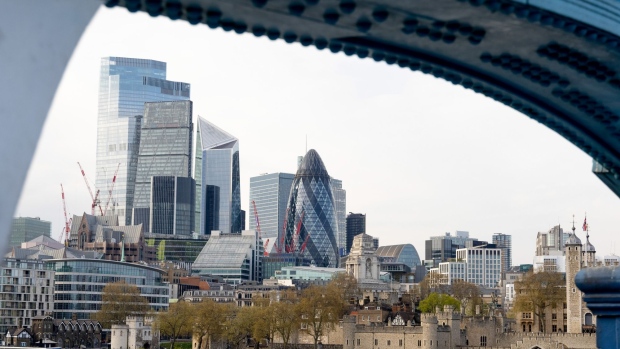
Inflation comes to haunt money managers as hurdle rate climbs
BNN Bloomberg
In many ways, fund managers haven’t had it this bad in a long while.
In many ways, fund managers haven’t had it this bad in a long while.
With stocks having had a tumultuous start to the year and inflation raging like a tempest, foundations, endowments and pension funds face a double whammy. Not only do they need to generate enough returns to match their annual spending rate but also make up for purchasing power that’s been corroded by prices spiraling up, up and away like a helium-filled balloon.
Foundations, for instance, are typically required to spend at least 5 per cent of their asset value every year, so their targeted returns are generally around 7 per cent+, to account for an assumed 2 per cent inflation and several basis points of research and running costs needed to generate those returns. However, with inflation this year likely to be way higher than what has been traditionally assumed, that hurdle is no longer so diminutive, but a much higher number that looks rather like pole-vault jump.
It wasn’t always like this. For instance, even in the immediate aftermath of the pandemic -- evidently when the backdrop was one of foreboding -- the challenge for money managers was just about finding adequate returns in the face of then non-existent inflation. In other words, the hurdle was much less than 7 per cent. That was pretty much true for any year after the financial crisis and through the entire span of the longest post-war expansion that ended in early 2020.
If returns had no volatility, fund managers can calibrate their spending to a rate that is equal to the real return -- that is, the nominal return net of inflation. Returns above spending would be reinvested to compensate for inflation, and the endowment would retain its purchasing power. Alas, the return of inflation is rocking that boat big time.
What does it all mean for those managing funds? Alpha, rather than beta, may take greater predominance in the search for returns. Portfolio concentration, rather than diversification, may have the edge (in the hands of the skilled). As Warren Buffett is known to say, risk isn’t about portfolio volatility; rather it stems from not knowing what one is doing.
